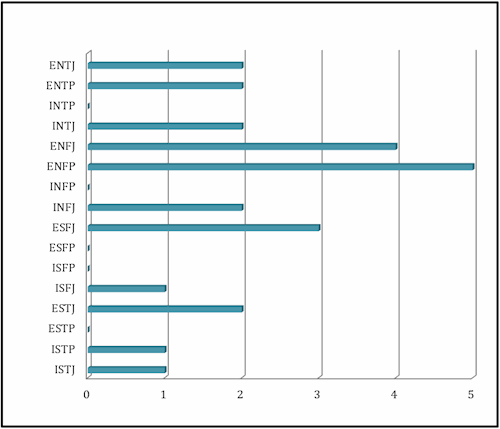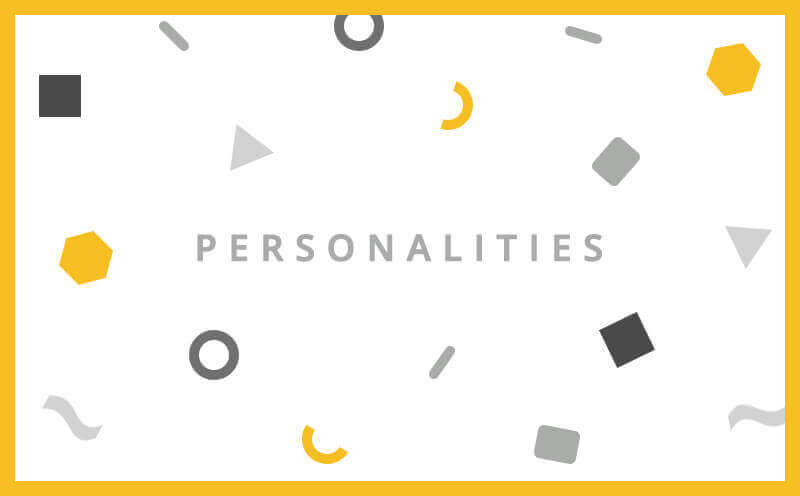Lately, it may seem as though I’ve been pestering coworkers around the office, asking questions like, “What’s your Myers–Briggs type?” or saying something along the lines of, “Ooh, you must be an I!” Although it may seem a bit invasive, I believe it’s important to understand your personality and how you best interact with others. We’re very blessed at Swarm to have a group so connected and communal, but we’re always looking for ways to further optimize our work and ourselves. So, with that being said, how much better would our group be if we knew specifically how to help, communicate with and encourage one another?
E…I… Oh, Let’s Just Break It Down
The Myers-Briggs Typology test is one that allows you to be categorized into four areas that combine into 16 personality types, giving you a general overview of how you work.
The four areas are:
I(ntroverted) or E(xtroverted): how you interact with the world and how you recharge
S(ensing) or N(Intuition): how you gather information
T(hinking) or F(eeling): how you make decisions
J(udging) or P(erceiving): how you get things done
The 16 personality types include:
ENTJ, ENTP, INTP, INTJ, ENFJ, ENFP, INFP, INFJ, ESFJ, ESFP, ISFP, ISFJ, ESTJ, ESTP, ISTP and ISTJ
Introverted/Extroverted
What does it look like to be an Introvert or an Extrovert?
Introverted (I)
- Reflective and reserved
- Sometimes spends too much time thinking and not acting
- Prefers to work alone
- Sometimes forgets to check with outside world and see if ideas fit the experience
Extroverted (E)
- “People people”
- Sometimes jumps in too quickly without thinking
- Comfortable in groups
- Sometimes forgets purpose and direction on project
Sensing/Intuitive
Here are the traits of Sensing and Intuitive people:
Sensing (S)
- Remembers events as snapshots
- Starts with facts
- Trusts experience first, symbols less
- Sometimes pays too much attention to fact and misses new possibilities
Intuitive (N)
- Remembers events by what was “read between lines”
- Starts with the big picture
- Trusts impressions/ symbols/ metaphors
- Sometimes thinks too much about possibilities, not reality
Thinking/Feeling
Are you a Thinker or a Feeler?
Thinking (T)
- Notices inconsistencies
- Values truth over tact
- Looks for logical explanations
- Can sometimes seem too task – oriented, uncaring or indifferent
Feeling (F)
- Concerned with harmony
- Values tact over truth
- Looks for what is important to others
- Sometimes experienced as too idealistic, mushy or indirect
Judging/Perceiving
And finally, the last category:
Judging (J)
- Likes things decided
- Appears to be task oriented
- Likes to make to-do lists
- Plans work to avoid rushing for a deadline
- Sometimes focuses too much on goal and misses new information
Perceiving (P)
- Likes to stay open
- Appears to be loose and casual
- Likes to approach work as play
- Is stimulated by approaching deadlines
- Sometimes stays open to new information too long and misses making needed decisions
What the Research Showed
Being an optimization and conversion marketing agency, we gather data and implement it. So, we gathered all of our personality types into a chart and discovered what we look like as a team:

The data combined shows that, overall, Swarm has the personality of an ENFJ.
E: “People” people, Quick to act, Group-focused
N: Big picture, Possibilities, “Read between the lines”
F: Harmonious, Tactful, Idealistic
J: Structured, Schedulers, Task masters, Goal-oriented
What this means is that we have an open door policy, we love helping our clients and that we are great as a Team. We aren’t afraid to try what’s new, pull from our diverse talents and innovate for our client’s benefit. We also have the ability to quickly adjust schedules, projects and our time to fit the needs of our clients.
Our combination of idealism and structured planning means that we’re an agency that will always be on the move, ready for what’s next and prepared for what the future holds.
I’m Interested: Where Can I Learn More?
There are many websites you can visit to learn more about these personality types and a variety of tests you can take. Some tests are free and others can be a bit pricey.
Here are some resources to help you get started:
Taking the Test (Free):
1) Yes/No: Humanmetrics
2) Slider: 16Personalities
Learning More about the Types:
